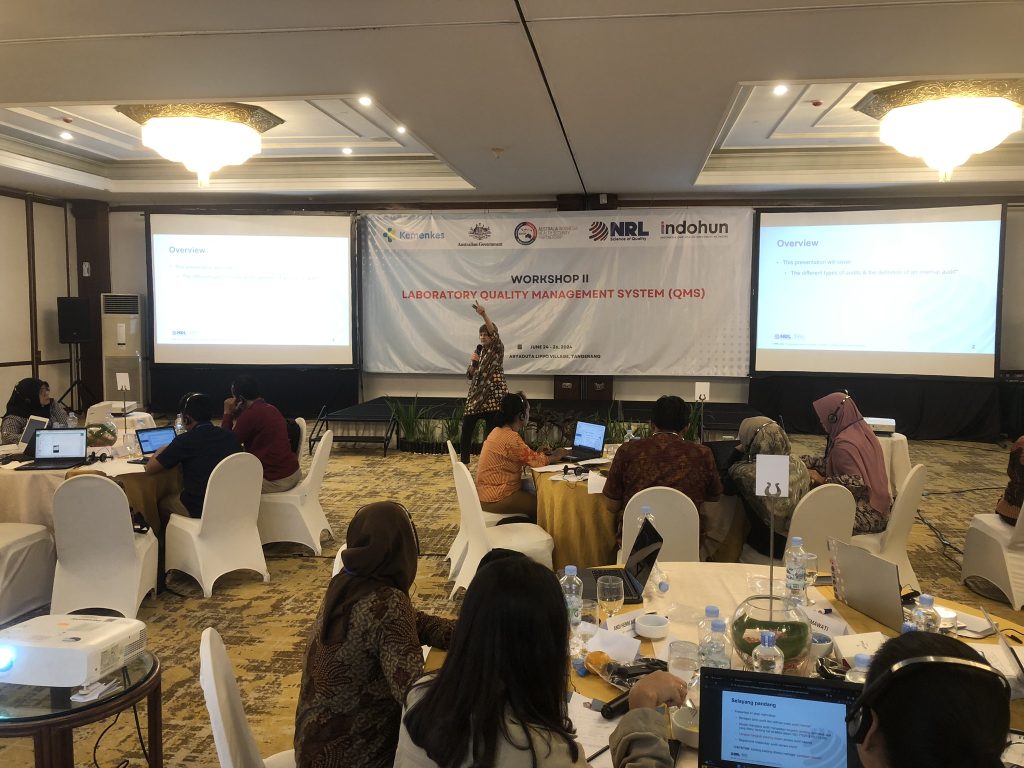Posted: October 2024
News-
Indonesia Trip Overview
In January, the NRL Scientific Consulting and Training (SCT) team held a five-day workshop in Yogyakarta focused on laboratory quality management systems (QMS), risk management, and workflow assessments. Participants included quality champions, observers from the Ministry of Health, and representatives from AIHSP and INDOHUN.
In June, a second three-day workshop in Tangerang provided advanced training on risk assessment, improvement opportunities, training checklists, nonconformity management, and biosafety principles. The SCT team also engaged key stakeholders from the Ministry of Health and other organizations, with appreciation for the logistical support from AIHSP and INDOHUN, enhancing laboratory capacity in Indonesia.
 PPHSN LabNet Meeting
PPHSN LabNet MeetingNRL participated virtually in the 8th Pacific Public Health Surveillance Network (PPHSN) LabNet Meeting and presented on NRL’s EQAS and POC QA programs. The meeting focused on various issues impacting laboratories in the Pacific, covering topics such as the International Health Regulations, external quality assessment programs, and laboratory quality management systems.
Sri Lanka Virtual TrainingIn mid-2023, the NRL Scientific Consulting and Training Team (SCTT) conducted an in-country assessment of the capacity of the Sri Lanka National Blood Transfusion Service (SLNBTS) to expand its EQA program. Following on from that assessment, SCTT is currently delivering virtual training to SLNBTS, focusing on EQAS production and the requirements of ISO 17043:2023 Conformity assessment – general requirements for the competence of proficiency testing providers. The goals of the training program are not only to build SLNBTS’ capacity to expand its EQA program for regional distribution, but also to support their accreditation to the ISO Standard.
The training program consists of six online workshops, including a detailed review of ISO 17043 and a mentoring session where SLNBTS staff were required to present on a risk assessment of their current production processes. The outcomes of the risk assessment have been included for review and discussion in subsequent workshops.
NRL acknowledges the support of WHO Southeast Asia Office in delivering this project
